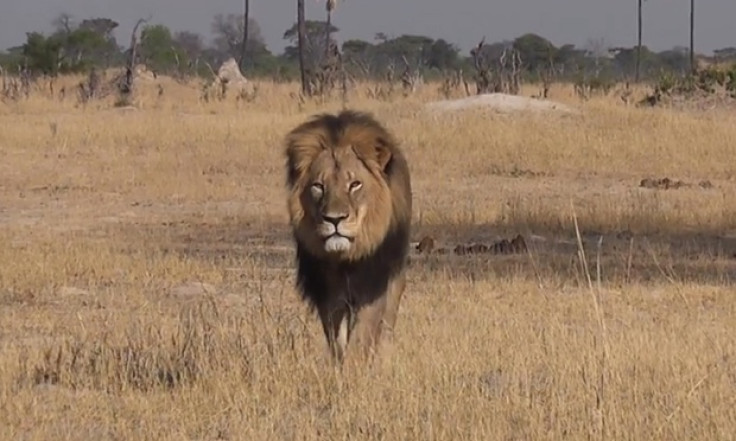Cecil the lion: Why Zimbabwe's symbol of national pride became so famous

The American dentist who killed Cecil the lion is wanted by Zimbabwean police, as two other men involved in the hunt appear in court over poaching charges.
Walter Palmer, who owns a dental practice in Minnesota, shot the lion on the outskirts of Hwange National Park in Zimbabwe with a crossbow and rifle. He allegedly paid £32,000 ($50,000) to kill the lion, which was lured to the edge of the park in the night using the carcass of an animal.
Following an international outcry from animal rights activists and an online flogging, Palmer has reportedly gone into hiding. And while the killing of big game – and the posting of photographs of their corpses on social media by hunters – always caused a backlash on the internet, why has the death of Cecil the lion sparked particular anger?
The hunting of Cecil appears to have garnered interest because he was a high-profile lion and one of the star attractions of Hwange National Park, the largest big game reserve in Zimbabwe. Known for his distinctive black mane, the animal has been described in reports as being a "symbol of national pride".
Cecil was internationally known and was being studied by Oxford University for research on conservation and environment management. Cecil, who was 13, had been fitted with a GPS collar to track his movements since 1999.
The death of one lion is not just the death of one lion – it is a cascade. It has consequences... It is highly likely that the incoming males will kill his offspring
Furthermore, the fate of the rest of Cecil's pride also remains in question. He and another male called Jericho led two prides with six lionesses and 12 cubs, which experts say may not survive.
Professor David Macdonald, who founded the Wildlife Conservation Research Unit at Oxford University, told the BBC: "The death of one lion is not just the death of one lion – it is a cascade. It has consequences... It is highly likely that the incoming males will kill his offspring."
As is the case with other Western hunters who pay thousands to prey on big game on the African continent, Palmer's killing of Cecil the lion is reminiscent of the colonial-era exploitation of sub-Saharan Africa of its property and heritage.
The lack of repercussions faced by Palmer is also fuelling anger. Two men involved in the hunt, professional hunter Theo Bronkhorst and farmer owner Honest Ndlovu, have appeared in court but Palmer has not been charged. A petition called Demand Justice For Cecil The Lion In Zimbabwe has been signed by more than 400,000 people.
It is contested whether the killing of Cecil was legal. Zimbabwe says it was illegal, Palmer says it was legal and maintains he did no wrong. While the killing of lions in the country is not illegal, it is necessary to have a valid permit. Palmer also states he was not aware the lion was protected.
He said in a statement: "I had no idea that the lion I took was a known, local favourite, was collared and part of a study until the end of the hunt."
© Copyright IBTimes 2024. All rights reserved.






